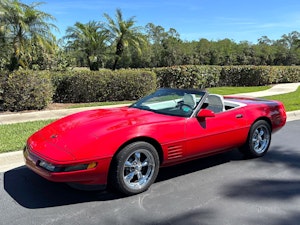Media | Articles
Lemon Laws: How They Work
Water is a bad thing when it comes to cars, or at least it is a bad thing to find inside your new car. I mean just rain water. Imagine spending $80,000-plus on a new four door luxury car and finding that every time it rained, the trunk filled with water. This is precisely what happened to an acquaintance of mine. He brought it into the dealer at one week old (and with some rather soggy dry cleaning) and they assured him the problem would be corrected. Nevertheless, the next rain storm left him once again with a portable kiddie pool behind his back seat.
He called me after more than a dozen trips to the dealership, with the trunk still leaking, and with the car now giving off a rank mildew smell. He said that the dealer had basically told him they couldn’t (or wouldn’t) fix the problem, wouldn’t buy the car back, and that their best solution was to give him a free rubber trunk liner. He had called me to inquire if he could sue the dealership or the manufacturer. Usually when I get these types of calls, I have the unfortunate task of informing the caller that his/her damages aren’t great enough to warrant a law suit. In this case, though, my acquaintance was lucky: He had bought a new car – clearly a lemon – from an authorized dealer, and he was therefore protected by his state’s (New York’s) new-car lemon law.
New-car buyers receive a terrific amount of protection under the so-called “Lemon Laws.” This discussion will revolve around New York’s lemon law, however, most states have very similar statutes, and filing suit under these laws is generally as simple as calling the state’s Attorney General’s office and requesting a “Lemon Law” instructional pamphlet. It’s worth noting that “Lemon Laws” don’t just apply to Hondas, Toyotas and their run-of-the-mill brethren; Ferraris, Lamborghinis, Lotuses, Paganis, and all of their etceterini friends are covered as well. This is important as these are the very cars likely to have the most issues (at least of the ridiculous electrical variety), and their owners are just as protected as owners of other vehicles.
New York’s “Lemon Law” (codified at NYS General Business Law Article 11-a, Section 198(a) et. seq.) is fairly typical of the laws that will be found in most jurisdictions. It states that if a “new” vehicle (defined as one with less than 18,000 or less than two years old, whichever is earlier) has a defect that “substantially affects its value,” the manufacturer or its authorized agent (the dealer) must repair the defect or replace the vehicle, free of charge. It further gives consumers the right to bring a proceeding under the law if the dealer doesn’t repair the defect or replace the vehicle, and holds that if the dealer refuses to repair the vehicle within 20 days of being given notice of the defect, or if the dealer makes four attempts to repair the defect without success, or if the vehicle is out of service for 30 days (total, not continuous) due to the defect, then the manufacturer must replace the vehicle or refund the purchase price (less a deduction for mileage over 12,000) at the option of the purchaser.
A lawyer is neither necessary nor particularly advisable when filing a lemon law suit. A simple call to the state’s AG’s office should yield the appropriate forms, and showing up for the hearing with an attorney will often not be well-received. The process is simple: receive and complete the appropriate forms and return them with photocopies of receipts showing that you fit into one of the categories for relief mentioned above. If you do, arbitration will be scheduled where both sides present their cases. The defenses available to the vehicle manufacturer are negligible: They include claiming that the defect is due to your abuse of the vehicle, or your racing the vehicle, or claiming that the defect does not “substantially affect the value” of the vehicle. If you have not been literally racing the vehicle, you don’t have much to worry about on the abuse front, and the “substantial” criteria is not am particularly burdensome hurdle either. Courts have held on appeal that things like rattles and leaking trunks do cross the threshold and require relief. In this case, the mobile fish bowl certainly qualifies. It’s a substantial problem that hadn’t been repaired after more than a dozen attempts.
Marketplace
Buy and sell classics with confidence
In general, state new-car lemon laws provide a near free and effective remedy for consumers who have purchased “lemons.” Owners of such problematic vehicles should be sure to take care of the problem sooner rather than later after the requisite number of repair attempts to avoid mileage-based offsets of the reward and running of the applicable statue of limitations. Those who do go this route, however, will find that they have a straightforward and inexpensive path to a new car or a large check – a path that doesn’t involve a trunk full of water.
Alex Leventhal is an attorney and car collector living in New York City. His early practice experience included the representation of new-car dealers and dealer groups engaged in complex transactions, as well as other merger and acquisition business. Alex currently owns a Ferrari Berlinetta Boxer 365 GT4 and a Dino 308 GT4, along with an Aston Martin V-8 Vantage and other European collector cars. He’s also director of the Aston Martin Club of North America.










